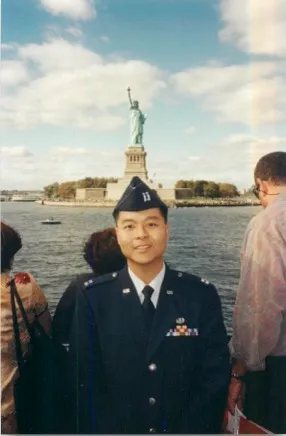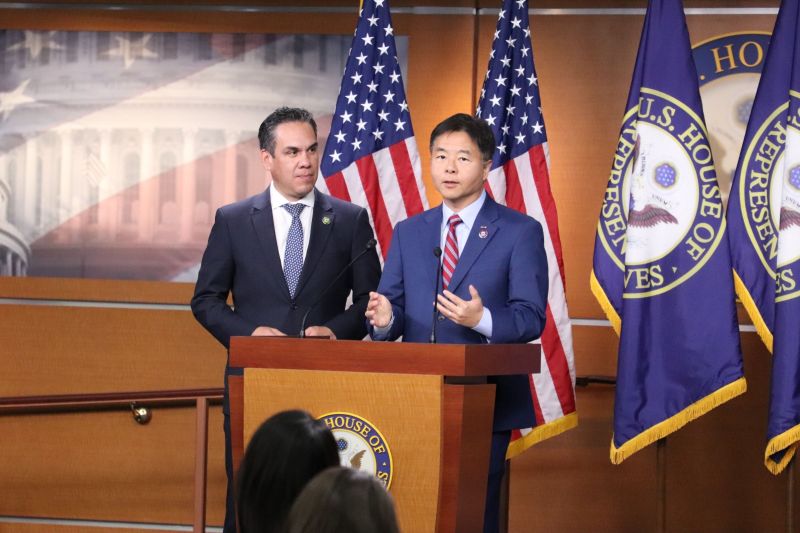“I believe I can never give back to America everything this amazing country has given to me and my family,” Rep. Ted Lieu ’91 told The Daily. “It’s one of the reasons I decided on politics: to make sure that this American dream remains open and free to people who want to work hard and succeed.”
Lieu is just one of many politicians whose trajectories were shaped by their time in the Stanford ecosystem. Along with other notable contemporaries, including U.K. Prime Minister Rishi Sunak MBA ’06 and U.S. Senator Cory Booker ’91, many Stanford alumni embark on careers in public service and seek elected office.
Roscoe Jones ’00 spent 17 years in the federal government advising three U.S. senators and a congressperson, before becoming a partner at a law firm. Jones credits his family upbringing for sparking his interest in politics. His father, an organizer with the 1964 Freedom Summer movement, and his mother, an educator, encouraged dialogue in his childhood — allowing Jones to grow up grappling with ideas of democracy, and how to live in a multiracial one.
Michael Tubbs M.A. ’12, who grew up in poverty with an incarcerated father, also identifies his childhood as a catalyst for his initial curiosity in ideas of racial justice and meritocracy. He served as the mayor of Stockton, Calif. from 2016 to 2020, and is currently the special adviser to California Gov. Gavin Newsom on economic mobility and opportunity.
“As a first-generation college student, I internalized this idea that I made it just because of my hard work,” Tubbs said. “But at Stanford, I learned about structure, policy and the ways in which society is organized to create the outcomes.”
Both Jones and Tubbs interned with the White House through the Stanford in Washington program, an opportunity that allowed them to engage with politics at the highest levels of the U.S. government. Equally as important to Jones and Tubbs as extracurricular and academic experiences, however, were the people they encountered along the way.
Jones and his friends “would stay up late all the time, having these deep philosophical conversations that challenged my beliefs.”
These conversations pushed Jones to consider his future career: “What was going to be my role? What could I do to use my life and my talents, to better society?”
Unlike Tubbs and Jones, Girmay Zahilay ’09, a council member in Washington state, studied biology at Stanford, intending to apply for medical school. However, Zahilay found himself gravitating toward service initiatives, serving as president of the Black Student Union.
“Your real education can come from outside of the classroom,” Zahilay said. “The greatest lessons I learned came in the form of relationship building … It came in the form of developing an impressive and motivated network of people.”
Zahilay’s path to becoming a King County Councilmember in Washington state was far from straightforward. After graduating from Stanford, Zahilay abandoned medicine in favor of law school, joining a law firm in New York City. It was not until four years into his job as an attorney that Zahilay paused to re-evaluate his trajectory.
“It’s kind of like you’re staring out into the abyss, where you’re the one who has to define what success looks like for you,” Zahilay said. “You’ve spent your whole life pursuing things based on success metrics that are not your own, you’re suddenly going to hit that breaking point.”
Although Zahilay recalls many fond memories of Stanford, he opened up about a climate of overachievement, pressure and self-comparison common at elite universities. Upon graduation, he “fell into the trap” of comparing himself to his peers, who were creating startups, making Forbes 30 under 30 lists and becoming billionaires.
At the same time, Jones observed another kind of culture fostered by the Stanford community.
“There’s Stanford alums in the U.S. Senate on both sides of the aisle,” Jones said. “It’s less about political views and more about Stanford imbuing certain values: a value of service, a value of making a difference in the world and changing lives, and doing things bigger than yourself … I think that transcends ideology.”
Lieu’s value of service was fostered initially by an Air Force ROTC scholarship that brought him to Stanford, but on arriving to campus he became involved with service groups such as a group called Core, which organized blood drives and tutoring programs in East Palo Alto.

When he left Stanford, Lieu knew that he wanted service to remain fundamental to his life. From his time in the military to a brief stint in law, and from the California State Legislature to Congress, Lieu has always been committed to being in “a place where I could cause change,” he said.
“I encourage Stanford students to explore in their four years,” Lieu said. “There’s really no other time in which you could repeat college.”
The work of many Stanford alumni today reflects that same Stanford-born system of values. Tubbs, for example, founded the Stockton Economic Empowerment Demonstrate in 2019 to pilot the first mayor-led universal basic income program. Zahilay’s day-to-day involves finding solutions to tackle issues of gentrification, gun violence and climate change.
On campus, the next generation of political figures has already begun taking form. Sathvik Nori ’25 has taken a nascent step into the world of electoral politics with a position on the Board of the Sequoia Union High School District. Nori’s district covers nearly 10,000 students throughout southern San Mateo County. At just 19 years old, Nori launched his campaign during the summer between his frosh and sophomore years at Stanford.
Nori’s interest in running for the Board position stemmed from his experience as a student in the district. During his senior year of high school, Nori served as a student trustee on the District Board, an opportunity that offered a direct view into the structural inefficiencies and inadequacies of his district leadership, and education policy more broadly.
Nori’s district houses a starkly diverse array of communities, with varying economic conditions. It’s a problem “that everyone has struggled to solve, which is: How do you go about educating such a diverse community?” Nori said.
Looking into the future, Nori is uncertain where his work in public service will take him. Local politics are not only an intentional launch-point into higher office, he shared.
“There are a lot of other people who use these local political offices as stepping stones to serve their time until they can run for a higher position,” said Nori. “I wasn’t really interested in elected office. I saw problems in my school district that I wanted to fix, and I wanted to do something about it.”
